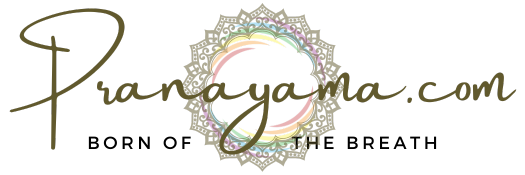Hi friend,
The first time I met Willem Dafoe was while practicing a lead first series Ashtanga Yoga practice under the guidance David Life. It was at Sharon & David’s Shala, Jiva Mukta in New York maybe 29 years ago?
I was in New York studying with Dharma Mittra and decided to swing by and take a class with my old friends from India, David Life and Sharon Gannon. I didn’t get a chance to talk to them much, but I did get a chance to practice next to Willem Dafoe and we sparked up a great conversation about the big buddha head we were practicing next to and Thich Nhat Hanh.
The conversation eventually rolled around to a book Mr. Dafoe was obsessed with called “The Miracle of Mindfulness” by Thich Nhat Hanh.
I asked him what it was like to be a lead actor in filming “Platoon” and at the same time having deep knowledge of Thich Nhat Hanh’s exile from Vietnam. His answer: “profound“.
For a point of reference: Thich Nhat Hanh was exiled from South Vietnam in 1966 and wrote “The Miracle of Mindfulness” in 1975. Willem Defoe was in filming “Platoon” with Oliver Stone in 1985-1986.
Mr. Dafoe and I met in 1996.
I’ve had the honor of sitting with Thich Nhat Hanh both at his Plum Village in France and at Deer Park Monastery in Escondido California.
They are true sanctuaries, and I continue to visit them to this day.
Quotes I’m Pondering
“Do not be idolatrous about or bound to any doctrine, theory, or ideology. All systems of thought are guiding means; they are not absolute truth.”
— First Precept of the Order of Interbeing,
Thich Nhat Hanh (Wikipedia)
He suggests while teachings, scriptures, and philosophies can be helpful, they should never replace one’s own deep observation and understanding.
He urged people to practice “deep looking“—to contemplate and examine reality as it is, rather than through the lens of inherited beliefs.
This is actually quite difficult to do.
As humans with limited time, energy, and cognitive resources, our intellectual reliance on others is a great gift. And “It’s simply easier to believe.”Especially if you are interested in participating in a religion/ spiritual path that requires that you commit completely with no independent thought to fully receive the transmission.
In essence, cultivating independent thought, as Thich Nhat Hanh suggests, involves mindfulness and personal experience.
Yet, it seems equally important to recognize the limitations of our knowledge and remain receptive to the experiences of others, ensuring a well-rounded and informed perspective.
Is the key to wisdom a blending of subjective experience and objective knowledge?
Looking forward to your comments.
Things I’ve Learned
Learning something and being able to apply it in everyday life are two different things.
True learning isn’t just about acquiring knowledge—it’s about integrating that knowledge into action. Many people “learn” concepts intellectually but struggle to embody them in real-life situations.
Application requires:
Understanding – Deep comprehension beyond surface-level memorization.
Practice – Repeated exposure and real-world use to reinforce learning.
Adaptation – The ability to modify what you’ve learned to fit different scenarios.
Embodiment – Moving from knowledge to an intuitive, automatic response.
For example, you might study pranayama techniques and understand their benefits intellectually, but true mastery comes only through consistent practice. It’s not until you integrate them into daily life—feeling their effects firsthand and instinctively using them in moments of stress—that they become more than just knowledge. When a practice moves beyond theory and becomes an embodied response, learning transforms into wisdom.
📖 🧠 Always learning, growing and applying.
The Pranayama Podcast
My podcast interview with Alex Kuhtarev last week was postponed because of the heavy rain coming down on our tin roofed studio.
The rain was a blessing though! I need more time to prepare.
We have rescheduled for the 28th of March.
—
Mr. Kuhtarev is a former KGB agent for Russia.
He is now an Entrepreneur, Husband/Father, Human Experience Guide, Pantheist & Plant Medicine Integration Mentor.
Buckle up for this one friends…
Word of the week
Nintai: [ɲ̟ĩnta̠i]. Noun.
In Japanese philosophy and martial arts, “nintai” (忍耐) means endurance, perseverance, and patience.
It emphasizes the ability to push through obstacles and accomplish goals through persistence.
Nintai is a concept that combines the kanji characters “忍” (nin) meaning “endure” or “bear” and “耐” (tai) meaning “resist” or “endure”.
Getting ready for Japan later this year. Super psyched.
Music Insight
Song I’ve discovered today & am feeling deeply:
Giordana Angi – Il Nostro Amore featuring Sting
Grateful 🙏
Stay in the light of love my friends. It’s always worth it. Dennis

Pranayama One
Inside the Pranayama One Paid Membership, you’ll get exclusive access to:
✅ My bucket list of interest – Follow along or jump in.
✅ Personal travel meetups- Connect up with me on the road.
✅ Weekly live streams – Engage in real-time discussions and practices. Currently every Tuesday at 9am.
✅ Community interaction – Comment, discuss, and connect on the newsletter +.
* Everything in the same space.
Video archive, newsletter archive, podcast archive, knowledge library, inspiration, and One Breath Together every Tuesday at 9 AM.
Join us for a deeper, more connected experience.
Founding members receive 10% off a yearly subscription of $270 or
$25 a month. Cancel anytime.

